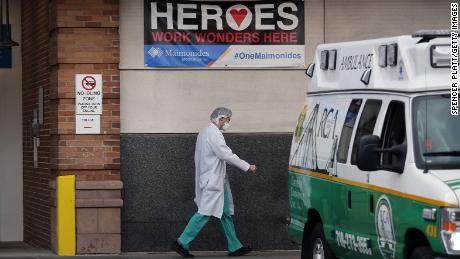(CNN)The Honquest funeral home in Northern Illinois receives about 30 calls for services a month.
In November, the home's numbers nearly doubled.
Founder and funeral director Tim Honquest told CNN affiliate WREX the home received about 54 calls -- 26 of which involved Covid-19 cases.
"This month of November was something I've never seen before," he told the affiliate. "It was just crazy."
With a refrigeration capacity of about 12 deceased, Honquest said the home, which is northeast of Chicago, had to turn a preparation room into a second refrigeration area to keep up.
"We ran out of space," he told the news station. "We literally ran out of space."
On November 18, Illinois Gov. J.B. Pritzker announced Covid-19 was the third leading cause of death in the state, behind heart disease and cancer. Between March and October, the governor had said, the virus took more lives than "the next two highest causes, strokes and accidents, combined." And the fall surge was quickly proving significantly worse -- and deadlier -- than the one that came in the summertime.
"In August, we were losing on average 14 people per day to this horrible disease," the governor had said. "Today, that number is 83."
And more than 5,600 Covid-19 patients remain hospitalized across the state -- about 1,170 of whom were in intensive care units, state health officials announced on December 3.
The coronavirus has changed much about how Americans -- and people everywhere -- live, and it has had a particular impact on the funeral industry, which must receive and handle the bodies of those who die of the virus. One change has simply been the number of people funeral homes have had to bury.
Scott Olson, president and funeral director of the Olson funeral home, also in Northern Illinois, told WREX they were also seeing an uptick in numbers.
"From our perspective as funeral directors, we want to make this time as comfortable and as comforting as we can," said Olson.
But it's been a very hard time "on everybody," he told the affiliate.
"It's super hard on us to see our families, because we kind of grieve along with them in many cases, you know, and see them going through that process."






